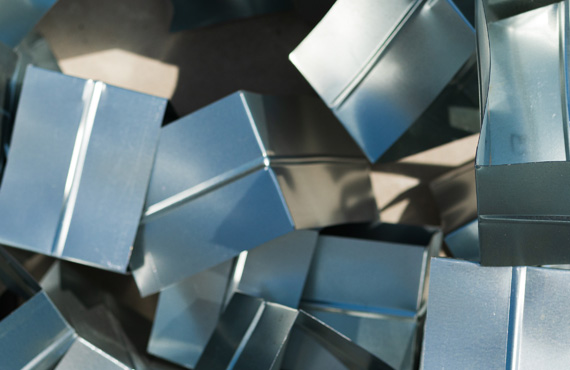Zinc coating heat treatment is a coating process applied to protect metals from corrosion. In this process, a thin layer of zinc is applied to the metal surface, increasing the material's durability. Since zinc is a metal with high corrosion resistance, zinc coating is commonly used for metal products exposed to outdoor environments and harsh conditions. Zinc coating heat treatment is typically done by hot-dip galvanizing, effectively protecting the metal surface from corrosion.
Zinc Coating Heat Treatment
What is Zinc Coating Heat Treatment?
How is Paint Coating Heat Treatment Applied?
Paint coating heat treatment mainly consists of the following steps:
- Preparation: The first step is cleaning the material to be coated. Oils, rust, oxides, and dirt on the material surface are cleaned using chemical cleaning solutions or mechanical methods (sanding, brushing). Surface cleaning is crucial for the zinc coating to adhere properly to the material's surface.
- Hot Dipping: Zinc coating is usually done by hot-dip galvanizing. In this process, the metal part is dipped into molten zinc at a temperature of 450-500°C. Zinc spreads over the metal's surface, forming a strong coating layer. The hot-dip process ensures that the coating is uniform and robust.
- Baking and Hardening: After the dipping process, the metal part is baked for a certain period to ensure that the zinc fully bonds to the metal surface. Baking increases the hardness and durability of the coating. The thickness of the zinc coating can vary depending on the dipping time and temperature.
- Cooling and Finishing: After the coating process is complete, the metal part is cooled in a controlled manner. During cooling, the zinc coating tightly adheres to the material surface, creating a durable protective layer. Additionally, if there are aesthetic concerns, surface roughness can be polished or smoothed out.
Materials Used in Zinc Coating Heat Treatment
Zinc coating is typically applied to ferrous (iron-containing) metals such as iron and steel. However, some aluminum and copper alloys can also be zinc-coated. Commonly used materials include:
| Steel: Steel is the most commonly used material for zinc coating. Steel surfaces, especially when used outdoors, are protected with zinc coating. |
| Cast Iron: Cast iron parts can also be zinc-coated, which protects the iron from corrosion. |
| Aluminum and Copper Alloys: Zinc coating can also be applied to aluminum and copper alloys, but special conditions may be required for these materials. |

Advantages of Zinc Coating Heat Treatment
- Corrosion Protection: Since zinc is highly resistant to oxidation, zinc coating effectively protects metal surfaces from rust and corrosion.
- Durability and Longevity: Zinc coating forms a protective layer on metal surfaces, extending the material's lifespan. This process ensures that metals used outdoors remain durable for a long time.
- Aesthetic Improvement: Zinc coating gives a shiny, aesthetically pleasing finish to the metal surface, providing a more attractive appearance for outdoor use.
- Low Maintenance Requirement: Zinc coating reduces the maintenance needs of the material. It provides effective corrosion protection, thus requiring less maintenance.
Where is Zinc Coating Heat Treatment Used?
Zinc coating heat treatment is widely used in many industrial fields, especially for products exposed to outdoor environments or harsh conditions. The main areas of application include:
- Construction Industry: Steel frames, poles, fences, railings, and other structural elements are protected from corrosion with zinc coating. This process ensures the longevity of structures.
- Automotive Industry: In the automotive industry, metal parts such as vehicle chassis, rims, and engine components are protected by zinc coating. This helps the vehicle remain durable and resistant to external factors.
- Electrical and Electronics Industry: Electrical poles, transmission lines, and other metal components are protected with zinc coating. In the electrical sector, it is crucial for materials to be resistant to weather conditions and corrosion.
- Agriculture and Infrastructure: Agricultural machinery, irrigation systems, and outdoor equipment are also protected with zinc coating. Additionally, in infrastructure projects, zinc coating extends the lifespan of metals and reduces maintenance needs.
- Maritime: Zinc coating is also used in shipbuilding and the maritime industry. Due to the high risk of corrosion in salty water environments, zinc coating is commonly applied to maritime equipment and ship components.

